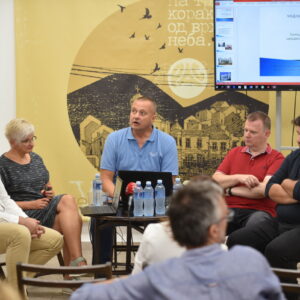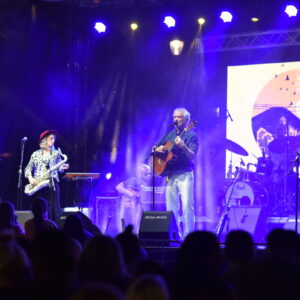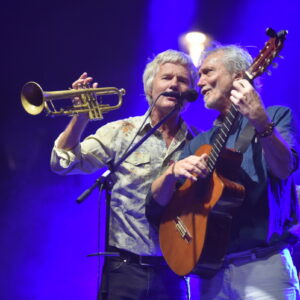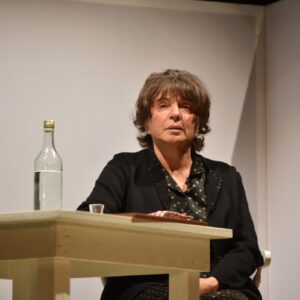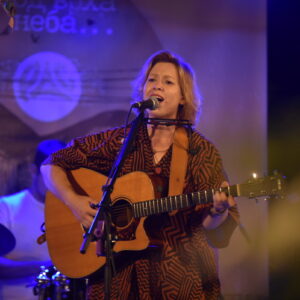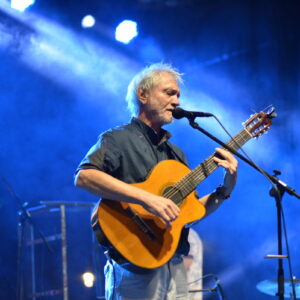Why cultural circles have been talking about the Raška’s Spiritual festivities with so much enthusiasm in the last few years is a question that has several clear answers.
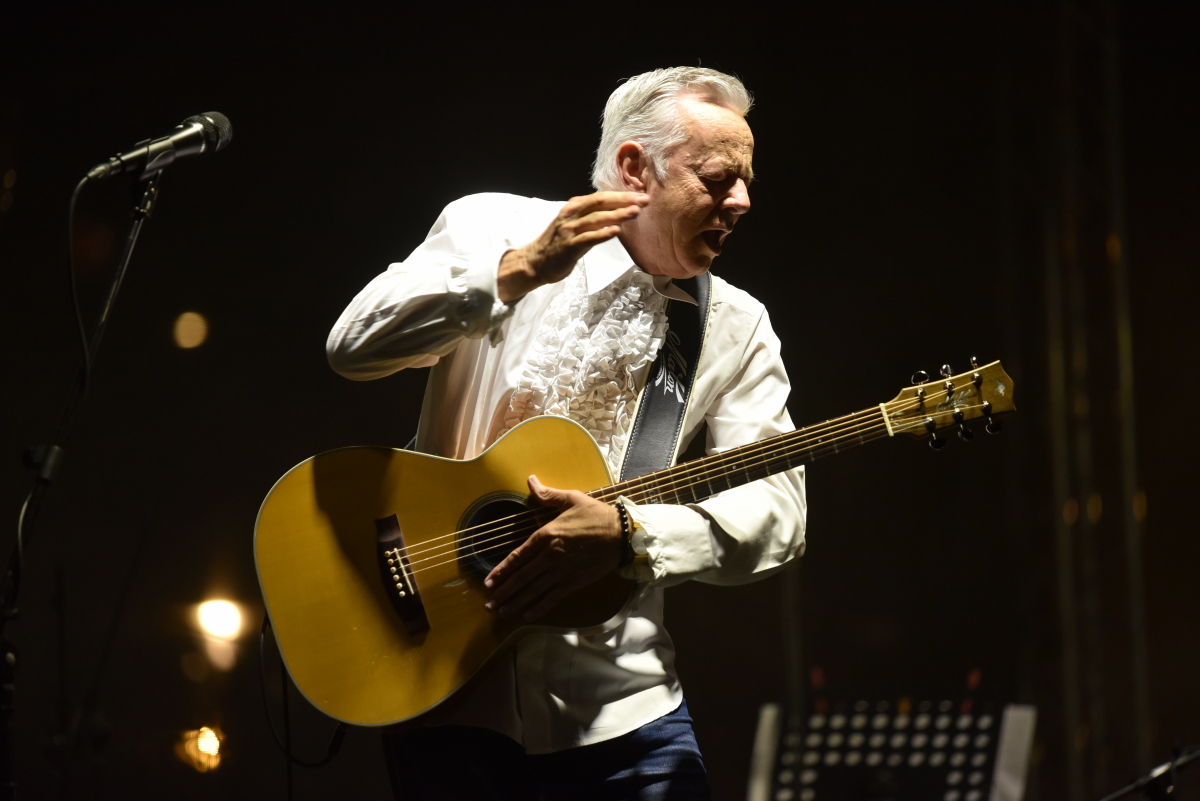
Firstly, it’s about the atmosphere, general impression, and poetics of space which combine tradition with modernity. That feeling of sitting at the place of the old Serbian medieval state of the Nemanjić dynasty, or being close to monasteries Gradac, Sopoćani, Studenica, Stara (Old) Pavlica, and being able at the same time to enjoy world-class musicians play like Tommy Emanuel, Miroslav Tadić, Matija Dedić, Stefan Milenković, Vasil Hadžimanov, or recitals of one and only Rade Šerbedžija, that’s giving you confidence same as Brits, Frenchs or Spaniards, people from the great cultures, who are proud of their history and fulfiled with the modernity. This year’s festivities motto was “Three steps from heaven”.
Secondly, the answer could be the concurrence of all who work in Raška. Insiders know how hard it is to organise a festival successfully and how many managerial skills are necessary to comply with all sides that participate in the organisation. It’s an impression that’s in the case of Raška’s Spiritual Festivities, which’s been last more than 30 years, all sounds like one, from the kindest drivers to magnificent women from the Tourist Board of Raška, and people from Gradac Cultural Centre with Gallery, where some part of the programme are located.
The locals from Raška truly enjoy cultural programs and think less about politics, which is always lovely. The major of Raška, Ignjat Rakitić, a man who seriously deliberates about cultural connections with education and tourism, succeeds in realising ideas.
The Memorial Room of Milunka Savić in Jošanička Banja is a modern, digitally equipped space, while work on establishing the Great War’s Museum is undergoing many stages. You could hear that free textbooks for school kids and free kindergartens are provided. Raška could be a small example of the social state and how it is possible to get trust from your citizens through practical decisions.
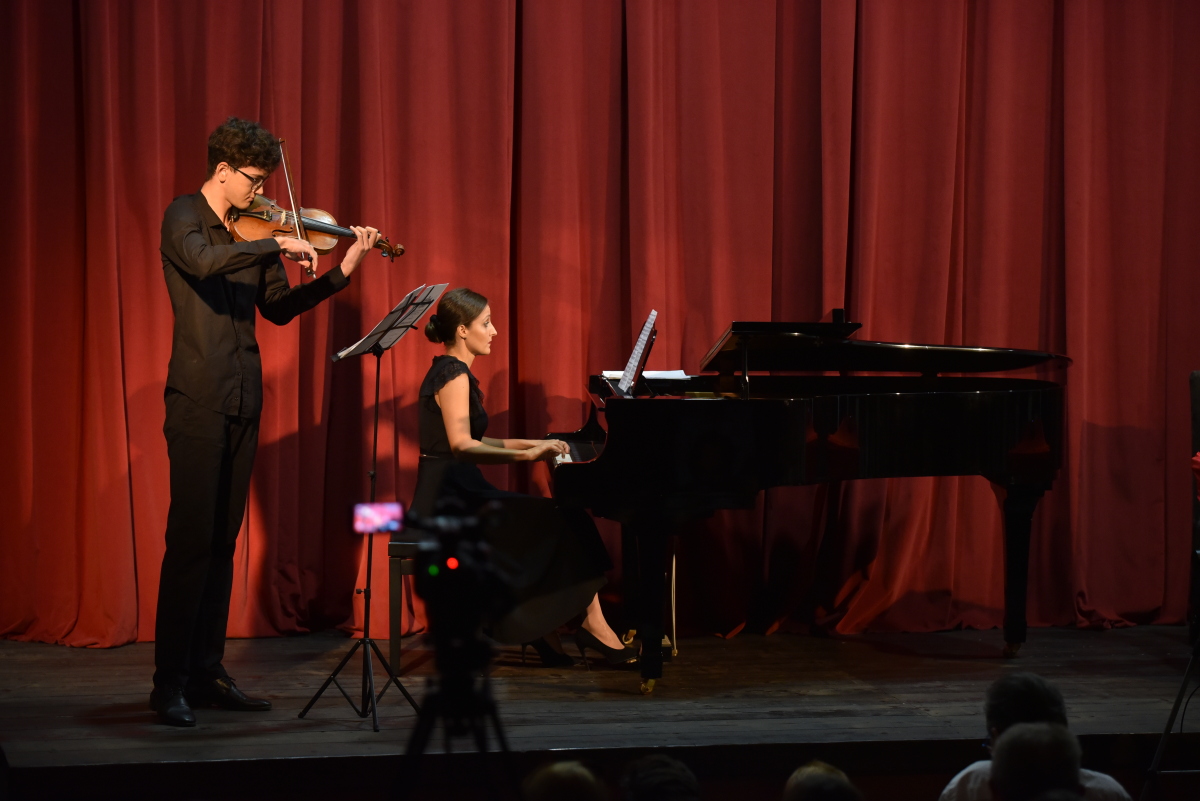
Kafana, one of the most important cultural institutions in Serbia, should not be forgotten, which, in this case, belongs to the “Karavan” touristic centre. It’s where you can hear oral essays after visiting panels, concerts and shows aside from great domestic wine, brandy and food. Maybe the book of oral essays from Raška on classical topics to avant-garde and postmodern will be published one day.
Thirdly, the answer is an editorial concept. Nikša Barlov, a program art director, was addressed with questions like this: “How did you attract Tommy Emanuel to visit Raška?” Barlov, therefore, tries to invite the best, but also to point out important anniversaries, such as the 50th anniversary of the films “The Godfather” and “Walter Defends Sarajevo”, to remind us of the ideas of Woodstock, which today many have trampled on, but also of the importance reading, through Miha Kovač’s work “I read to be read”.
Theatrical performances have filled the hall of the Cultural Center to the last seats for years, and this year the audience was moved by the performances of Mirjana Karanović in “Petrija’s Wreath” and Nenad Jezdić in “The Book of Milutin”. Serbs from the diaspora also got a chance to speak – the Serbian Cultural Society “Prosvjeta” from Zagreb, which, among other things, published Drago Kekanović’s novel “Prisnost”, crowned with the first “Belgrade Winner” Award. The segment of spirituality is always present. Children make serious mosaics with academic painter Ljiljana Rivić. As part of the panel program last year, there was talk about where God is when a person is in trouble. These – Goran Vukčević and Bojan Munjin talked about the Holy Mountain. God is always there, only we forget him, and the solutions to all our problems are letting go of vanity and humility; these are the advice of the wise. It was nice to see that nun, Mother Nina, and the nuns from the Gradac monastery, who invite guests to this sanctuary and cultural monument, are in the front rows of such programs.
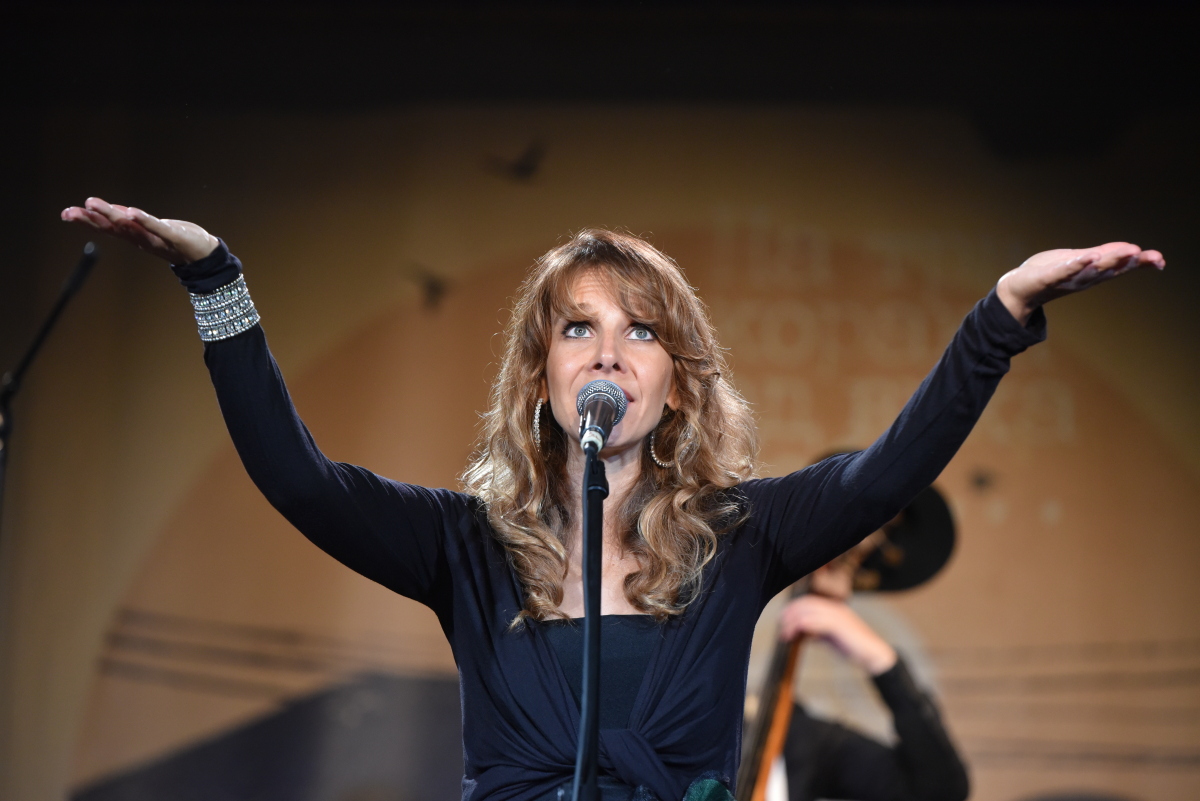
This time, special attention was also drawn to the lecture given by a professor of linguistics Rajna Dragicevic of the Faculty of Philology of the University of Belgrade. They discussed choosing the best word among children aged 11 to 18 on the Serbian Language Society website. Of the 950 words that arrived, the word “dawn” won, giving an optimistic picture of young generations. Children read books, notice and remember the Slavic Serbian words more than the Turks, and relate to specific writers and the hard-working love, home and family – the conclusions of Prof. Dr Dragičević’s research.
What else brings us to Rashka? These are people. At evening concerts, in the main town square, you can see parents with small children, babies and pets; whole families are there. Babies sleep next to 6-foot speakers, dripping with the soldering of some jazz. It’s an excellent recommendation for a future music fan who is hopeful he won’t go down the turbo-folk path after all.
You come to the theatre wearing an evening dress, like somewhere in Cannes or Berlin, and then you talk about what you’ve seen.
In Raška lives the memory of dear people who are no longer with us, of Milan Vlajčić, Velja Pavlović, and many others.
Some have been traditionally rewarded with the Stefan the First-Crowned Award. It’s important to hear and see these people with a lot to say. Only some of the winners so far are: Svetislav Bozic, Miodrag Bata Mihajlovic, Emir Kusturica, Sava Rakocevic, Pedja Ristic, Miodrag Pavlovic, Mihajlo Djuric, Danko Popovic, Milisav Savic, Nebojsa Bradic, Timothy John Bayford, Petar Peca Popovic, Djordje Kadijevic, Darko Tanaskovic. After a lecture by this year’s winner, diplomat, writer and translator, Darko Tanaskovic, on the protection of our cultural monuments in Kosovo and Metohija, on the lioness diplomatic struggle in UNESCO, in which he participated, it appears that our positions are better than otherwise thought. Still, it is essential to stay on that line.
One different, old Raška, a place of dances and promenades where boys competed for girls’ affection, was revived by a new, luxurious, bilingual edition of Milisav Savic’s book “The Boys from Raška”. The city from the old archives is on this year’s event’s poster, “Three Steps from Heaven”. The translator, Randall Major, our man from Texas, compared that old Raška to his American homeland. Because Raška is the World.
